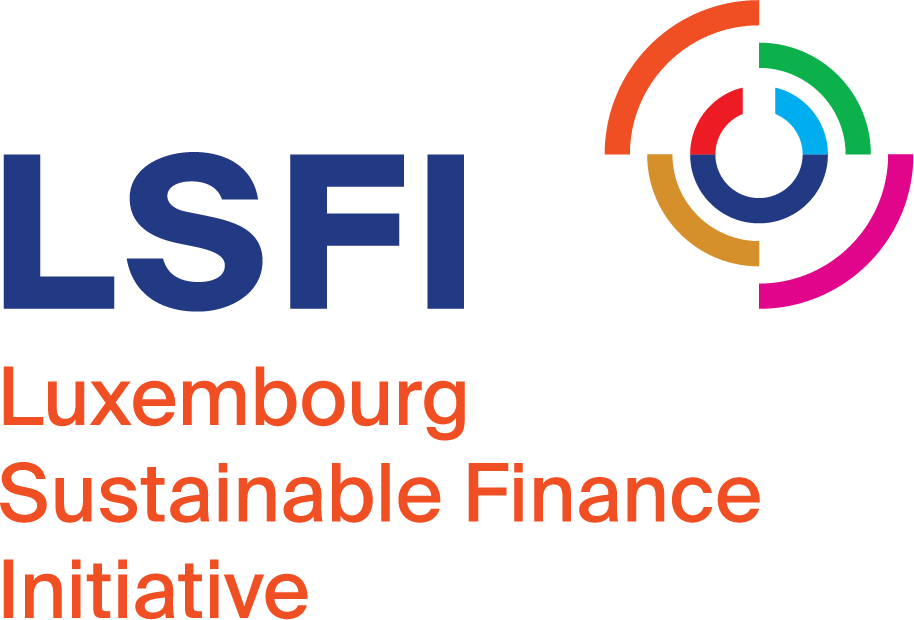Sustainable Finance Disclosure Regulation (SFDR)
The Sustainable Finance Disclosure Regulation (SFDR – Regulation (EU) 2019/2088) is a Regulation introduced by the European Commission to improve transparency in the market for sustainable investment products, prevent greenwashing and increase transparency around sustainability claims made by financial market participants.
It introduces mandatory information on a broad range of environmental, social & governance (ESG) metrics that Financial Market Participants (FMPs)(1) must disclose at the entity and at product level.
In particular, SFDR requires FMPs to disclose information on how they incorporate sustainability risks into their investment decision-making processes (Art. 3 I SFDR).
On the product level, SFDR distinguishes between different levels of disclosure depending on the ambitions of a certain product:
- For all their financial products, FMPs have to disclose information on how they integrate sustainability risks into the investment decisions and the impacts sustainability risks may have (Art. 6 I SFDR). If FMPs deem sustainability risks as not material risks for their investments, they must disclose the reasons in the financial products’ pre-contractual documents (e.g., prospectus);
- FMPs don’t have to disclose any additional sustainability-related information for those products which do not have additional characteristics linked to sustainability. These products which do not have any sustainability ambition are commonly referred to as “Art. 6 products”;
- FMPs must disclose additional information – including the information on sustainability risks – for products that either “promote environmental and or social characteristics” (Art. 8 I SFDR) or have “sustainable investments as their objectives” (Art. 9 I SFDR). These products are commonly referred to respectively as “Art. 8 products” or “Art. 9 products”.
In addition, SFDR has been complemented by a set of Regulatory Technical Standards (SFDR-RTS – Commission Delegated Regulation (EU) 2022/1288), which further detail the information FMPs must disclose by introducing, amongst others, a set of disclosure templates for products promoting environmental and/or social characteristics (Art. 8 I SFDR) and for products having sustainable investments as their objective (Art. 9 I SFDR).
The SFDR-RTS also detail the concept of Principal Adverse Impacts (PAIs). PAIs are environmental and social-related indicators that assess the (negative) impacts that investment decisions taken by FMPs have on sustainability factors, such as environmental and social issues. The SFDR-RTS divide the PAI indicators into three tables, which are included in Annex I:
- Table 1: Mandatory environmental and social indicators for investments in investee companies (14 indicators), sovereigns and supranationals (2 indicators), and real estate assets (2 indicators). Examples of these indicators are: GHG emissions, activities negatively affecting biodiversity-sensitive areas, and board gender diversity;
- Table 2: Additional optional environmental indicators for investments in investee companies (16 indicators), sovereigns and supranationals (1 indicators), and real estate assets (5 indicators). Examples of these indicators are: emissions of air pollutants, water usage and recycling, and raw materials consumption for new construction and major renovations;
- Table 3: Additional optional social indicators for investments in investee companies (17 indicators) and in sovereign and supranationals (7 indicators). Examples of these indicators are: rate of accidents, insufficient whistleblower protection, and lack of anti-corruption and anti-bribery policies.
Notes:
(1) In general, FMPs are actors that take part in the market by purchasing and offering financial assets. Amongst others, FMPs in scope are: Alternative investment fund managers (AIFMs); UCITS management companies; Investment firms; Credit institutions providing portfolio management services.
SFDR aims at creating a framework that requires FMPs to disclose information on sustainability ambitions they set for themselves, as well as for their products.
From an investor perspective, SFDR seeks to create a level playing field that allows investors to compare sustainability-related information disclosure of different financial products more easily.
SFDR applies to Financial Market Participants (FMPs). FMPs are actors that take part in the market by purchasing and offering financial assets. SFDR defines a list of FMPs obliged to apply the disclosure standards. Among the FMPs in scope are:
- Alternative investment fund managers (AIFMs);
- UCITS management companies;
- Investment firms;
- Credit institutions providing portfolio management services.
FMPs in the scope of SFDR must disclose publicly on their websites information on how they integrate sustainability risk considerations into their investment processes, as well as whether they consider adverse impacts of their investment decisions (PAIs).
In case they consider PAIs, FMPs are required to publish an overview of the impacts on their website and update the overview annually. In addition, FMPs must review their existing remuneration policies and assess the impact the integration of sustainability risks may have on those documents.
In short, SFDR requires FMPs to disclose the following information publicly on their websites:
- Description of the integration of sustainability risks into the investments decision-making process (“Sustainability Risk Policy”);
- Statement on the consideration of PAIs (“PAIs Statement”);
- Updated remuneration policy including sustainability considerations.
Aside from the disclosures at the entity level, FMPs must disclose certain product information based on each product’s characteristics. For products that promote environmental and/or social characteristics (Art. 8 SFDR) or have investments in sustainable activities as their objective (Art. 9 SFDR), FMPs must use the disclosure templates introduced by the SFDR-RTS. The templates provide (potential) investors with information on the sustainability characteristics of a specific product prior to the investment decision (pre-contractual disclosures), as well as on the actual sustainability performance on an annual basis (periodic disclosures).
Amongst others, FMPs must explain:
- What environmental and/or social characteristics a product promotes (Art.8 SFDR) or what sustainable investment objective a product pursues (Art. 9 SFDR);
- What indicators are being used to measure the adherence to the promoted characteristics or to the sustainable investment objective(s);
- How good governance principles are taken into account;
- Whether or not a product considers PAIs;
- The planned asset allocation.
SFDR is closely linked to the EU Taxonomy Regulation. The EU Taxonomy sets a framework for the definition of sustainable investments being used by FMPs. If FMPs decide to set an ambition on a product level to invest in sustainable investments aligned with the EU Taxonomy requirements, the recital 33 of the SFDR Level 2 states that they must disclose this to investors using the templates introduced by the SFDR-RTS. Visit the Taxonomy Regulation for more information.
In addition, SFDR is linked to the amendments made to MiFID II, and in particular to Art. 1 of the latter. The amended MiFID II requirements introduce, amongst others, sustainability preferences. Sustainability preferences are based on and follow the same requirements included in the disclosure documents introduced by the SFDR-RTS. Visit MiFID II for more information.
The new ESG rating regulation, published in December 2024, amends the SFDR by adding a provision that expands the website disclosure requirements for financial market participants or financial advisers who issue and disclose ESG ratings to third parties. Visit ESG Rating Regulation for more information.
The Luxembourg Law of 25 February 2022 implementing the Regulation (EU) 2019/2088 (SFDR) and the Regulation (EU) 2020/852 (EU Taxonomy Regulation) explicitly confirms that the Commission de Surveillance du Secteur Financier (CSSF) and the Commissariat aux Assurances (CAA) are the competent authorities responsible in Luxembourg for the supervision of the proper implementation of the SFDR and the EU Taxonomy Regulation by all financial market participants and financial advisers.
CSSF FAQ on SFDR (Version 4)
The FAQ aims at providing further clarity on aspects of the SFDR Regulation and the document can be updated when necessary (Version 1 – December 2022, current version released on 18 December 2024 is the 4th update).
Regulatory dates:
- 10 March 2021: Application of SFDR;
- 01 January 2023: Application of complementary requirements introduced by the SFDR-RTS.
Other key dates:
- 01 January 2023: Mandatory use of disclosure templates introduced by SFDR-RTS;
- 17 February 2023: Introduction of revised disclosure templates;
- 30 June 2023: Final date to report for the first time on Principal Adverse Impacts (PAIs) of investment decisions for the reference year 2022.
- 09 December 2019: Publication of the SFDR in the Journal of the EU;
- During 2020 and early 2021: FMPs prepared for the first set of disclosure requirements, which included the disclosure of certain information about the FMP on its website, as well as certain product-specific information within the product-specific documentation;
- 10 March 2021: Application date of the SFDR;
- 06 April 2022: Adoption of the SFDR-RTS;
- 01 January 2023: Application date of the SFDR-RTS;
- 12 April 2023: Publication of a joint consultation paper by the European Supervisory Authorities following the review of the SFDR Delegated Regulation regarding PAI and financial product disclosures;
- 04 July 2023: End of the consultation period for the joint consultation paper published on 12 April 2023 for the revised SFDR-RTS;
-
04 December 2023: Publication of ESAs Final Report on draft Regulatory Technical Standards;
- 18 June 2024: Publication of Esas’ joint Opinion on the improvements to the SFDR in the context of review of the SFDR framework by the EU Commission.
Currently, no consultation is open or pending.
- SFDR – Regulation (EU) 2019/2088 of the European Parliament and of the Council of 27 November 2019 on sustainability‐related disclosures in the financial services sector
- SFDR-RTS – Commission Delegated Regulation (EU) 2022/1288 of 6 April 2022 supplementing Regulation (EU) 2019/2088
- Amended SFDR-RTS – Commission Delegated Regulation (EU) 2023/363 of 31 October 2022 amending and correcting the regulatory technical standards laid down in Delegated Regulation (EU) 2022/1288
- Disclosure templates
- Link to the public consultation on the SFDR
- Summary Report of the Open and Targeted Consultations on the SFDR assessment
- Final Report on draft Regulatory Technical Standards on the review of PAI and financial product disclosures in the SFDR Delegated Regulation
- A joint Opinion expressed by the three European Supervisory Authorities (EBA, EIOPA and ESMA – ESAs) on the assessment of the SFDR in the context of a comprehensive review of its framework by the European Commission
- Commission notice (C/2024/6792) Commission Notice on the interpretation of certain legal provisions in Directive 2013/34/EU (Accounting Directive), Directive 2006/43/EC (Audit Directive), Regulation (EU) No 537/2014 (Audit Regulation), Directive 2004/109/EC (Transparency Directive), Delegated Regulation (EU) 2023/2772 (first set of European Sustainability Reporting Standards, ‘first ESRS delegated act’), and Regulation (EU) 2019/2088 (Sustainable Finance Disclosures Regulation, ‘SFDR’) as regards sustainability reporting
- Categorisation of Products under the SFDR: Proposal of the Platform on Sustainable Finance
- Luxembourg Law of 25 February 2022
- CSSF FAQ on SFDR (Version 4)

